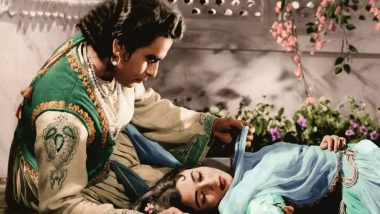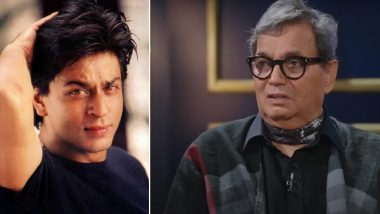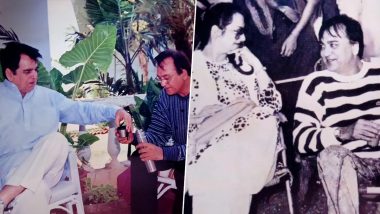Indian cinema classic "Mughal-e-Azam" celebrates its 60th anniversary this week with director K Asif's son Akbar Asif presenting the screenplay of the film to the Oscars library in Hollywood. Akbar Asif, the UK-based son of the late director, said he presented the screenplay to the Academy Awards to mark the big anniversary of his father's historical epic starring Prithviraj Kapoor, Dilip Kumar and Madhubala, which falls on Wednesday. Three versions of the legendary screenplay – in Hindi, Roman text and English translation – are now available at the Margaret Herrick Library, a world-renowned reference and research collection of the Academy devoted to the history and development of the motion picture as an art form and an industry. Madhuri Dixit Shares A Now And Then Picture With Salman Khan To Celebrate 26 Years Of Hum Aapke Hain Koun
"The journey of ‘Mughal-e-Azam' started with words from the greatest writing team ever assembled in Hindi cinema and I thought the best way to honour them was to permanently preserve their screenplay in the world's most renowned film library," said Akbar Asif, a businessman based in London.
"I hope future generations can learn and get inspired by the work of my late father and his incredible team of writers. I want to humbly thank the Academy Awards for accepting the screenplay," he said. The screenplay of the film, which hit the screens in India on August 5, 1960, was crafted by a team comprising Aman, Kamal Amrohi, Wajahat Mirza, Ehsan Rizvi as well as director K. Asif. 14 Years Of Omkara: Ajay Devgn Celebrates Vishal Bharadwaj’s Blockbuster, Calls It a Special Film
"Mughal-e-Azam" went on to break every box office record and is still considered one of the highest-grossing Bollywood films of all time.
In 2004, the film became the first full-length Indian feature film colourised for a theatrical re-release. In 2013, to mark the 100th anniversary of Indian cinema, it was declared the greatest Bollywood film ever made. In 2016, an official live musical based on the film made history as one of the biggest theatre productions ever staged anywhere in the world. Filmmakers can submit their films to the Oscars library by filling up a form. Movies released in Los Angeles are automatically invited to be a part of the library.













 Quickly
Quickly




















